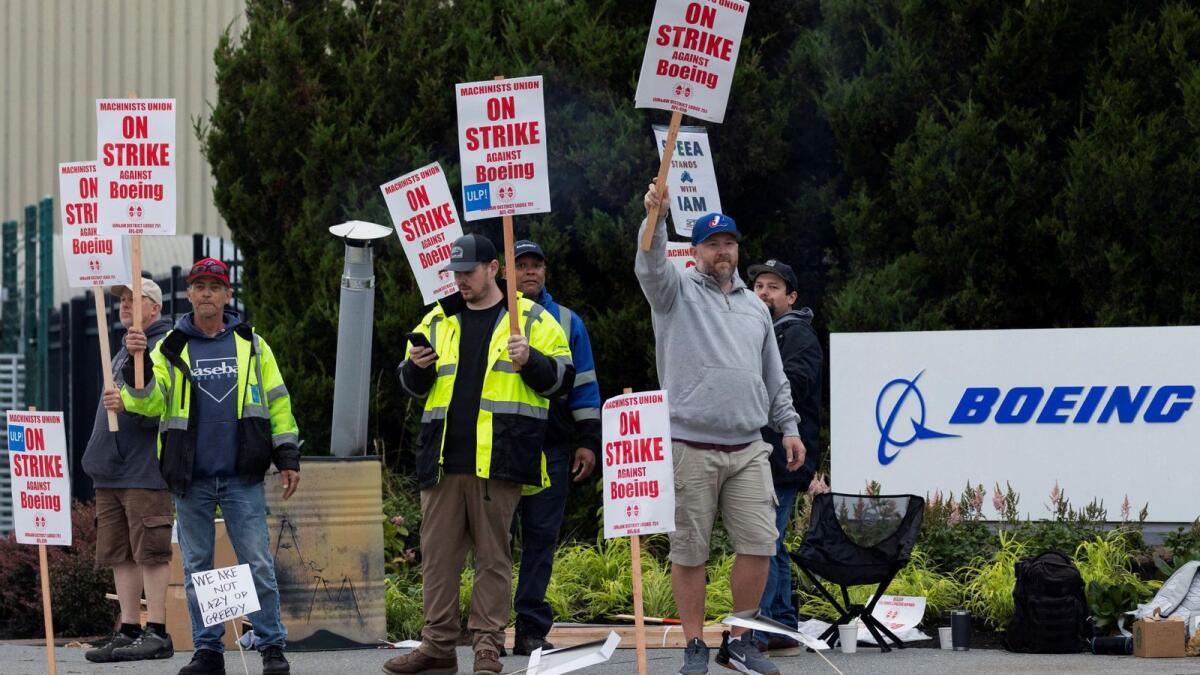Boeing factory workers in the US went on strike after rejecting a proposal from the company. The workers, represented by the machinists union IAM-District 751, will resume talks with Boeing under a federal mediator. The strike, which began over a pay dispute, is the first walkout at Boeing in 16 years. Union members voted overwhelmingly to reject the tentative contract offer and proceed with the strike.
Boeing has expressed eagerness to return to the bargaining table since the strike began, with federal mediators confirming that talks will resume early next week. The strike, which saw workers in the Seattle region vote with high percentages to walk out, has led to the closure of two major plane assembly plants, delaying the company’s efforts to recover from financial stress. The proposed 25 percent wage hike over four years and commitment to invest in the Puget Sound region were seen as insufficient by workers who have faced stagnant wages for over a decade.
The strike serves as a culmination of labor tensions between Boeing and its workers, who are demanding fair wages and better working conditions. IAM-District 751 has called on workers to show unity and strength on the picket lines, emphasizing the importance of solidarity in their fight for better treatment from Boeing. The union’s determination to stand firm in negotiations reflects a broader trend of workers across various industries pushing back against corporate practices that prioritize profits over worker well-being.
As Boeing and the union prepare to resume negotiations, the outcome of the talks will have significant implications for both parties. The strike has already caused production delays and financial strain on Boeing, while workers continue to stand their ground in demanding fair compensation. The involvement of federal mediators underscores the seriousness of the situation, with both sides needing to find a resolution that addresses the core issues raised by the workers while ensuring the company’s operational stability.
The current strike, following a long period of labor disputes and stagnant wages, highlights the growing tensions between workers and corporations in the US. The rise of union activism and worker solidarity signals a shift in the balance of power, with employees demanding greater respect and fair treatment from their employers. The strike at Boeing reflects a broader movement of workers standing up for their rights and pushing back against corporate practices that exploit labor and prioritize profits over people.
In conclusion, the ongoing strike at Boeing underscores the importance of fair labor practices and the need for companies to prioritize the well-being of their workers. The negotiations between Boeing and the union will be crucial in determining the outcome of the strike and shaping the future of labor relations in the aviation industry. As workers continue to stand united on the picket lines, their determination to fight for better wages and working conditions serves as a reminder of the power of collective action in holding corporations accountable for their treatment of employees.











